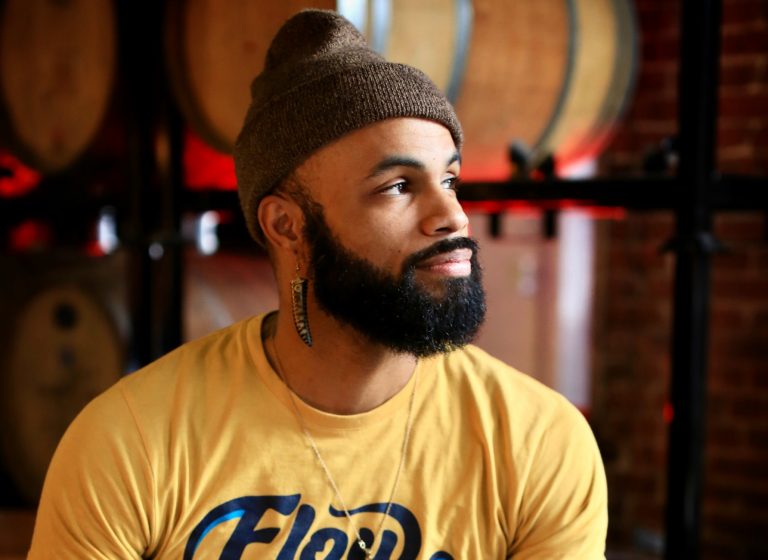America’s first Black beer festival founder talks about how his embrace of the Black community forged a new business model.
By Angela Bronner
One could say that Barrel & Flow, the Black brewing and arts festival coming into its seventh year, is beyond – to use slightly dated vernacular. But the adjective fits because it’s way more than just a beer festival.
From the beginning, Barrel & Flow has been a multi-day event that taps into Black art, artists, and artisans; delectable food; vibrant community; job opportunities; and connections with nonprofits. Of course, there’s also the chance to sample the wares of Black-owned breweries and alcohol makers – all with like-minded (maybe not sober minded) friends.
According to Forbes magazine, the United States beer market is a $100 billion dollar industry. And as founder Day Bracey notes, Black people represent less than one percent ownership, which he and his partners see as a major problem – and opportunity.
Bracey, 41, and co-founders Ed Bailey, 36, and novelist Cathy Bruno, 46, are gearing up to make a go of it again in August 2024. The comedian, who co-hosts the “Drinking Partners” podcast with Bailey, began the first Black beer festival as Fresh Fest Beer Fest to critical acclaim before recasting it as Barrel & Flow.
BlackPittsburgh.com interviewed Bracey, who explains the hows and whys of this increasingly popular festival, which saw more than 4,000 attendees in 2023. For this year, the festival should see as many or more: it just landed at number one on USA Today’s “10 Best Beer Festivals” in the nation this March.” Bracey says for 2024, he’s looking forward to expanding the festival’s S.T.E.A.M. tent programming – a family friendly science, tech, engineering, arts, and math activities station organized in collaboration with Atithi Arts Studios and the Carnegie Arts Center.
How’d you get into this?
I’ve always been a hustler, but my background for the most part was social services and comedy. If you look at the two major forms of funding for arts and entertainment in America (whether it’s baseball, movies, or music), it’s alcohol and grants. Ticket sales are extra; merchandise is extra. You do all these other things to piece it together but the people who are paying the bills, who are keeping the lights on, are typically booze or grants. So, in the podcast [“Drinking Partners”], we hooked up with the brewing industry. The craft brewing industry was really just getting off the ground here in Pittsburgh, and it was a way for us to cut out the middleman, which is the venue.
Why is that?
Say there’s a comedy show at the Improv. They might even let you in for free and charge a two drink or item minimum. We would have to bring people in order to be on stage. We’d be lucky if we’d get paid, and if we did get paid, it wasn’t great. Meanwhile, my friends and family are leaving out of there with $100+ tabs, like “man, I want to support you, but I can’t afford to.” All of this money’s being made [but] we’re the only ones not getting our fair share. So, we struck up relationships with the brewing industry to market and promote them to our following, in exchange they would provide us with free beer.
We moved our shows from the Improvs and places that had liquor licenses into theaters and places that didn’t have liquor licenses so that we could create a BYOB platform. And we were able to bring these craft brewers in to pour samples so that folks would be able to try their product. The craft brewery was bringing us folks; the theater was bringing us folks; and the opening musician would bring folks. It was all this cross-collaboration and cross-promotion, and people were really excited. We were introducing them to new things. We were able to raise our ticket prices from $5 to $25. Actually, it got up to $30 bucks a ticket. But that $30 was the only $30 you were spending. As a result of us raising our ticket price, we were able to pay our artists better.
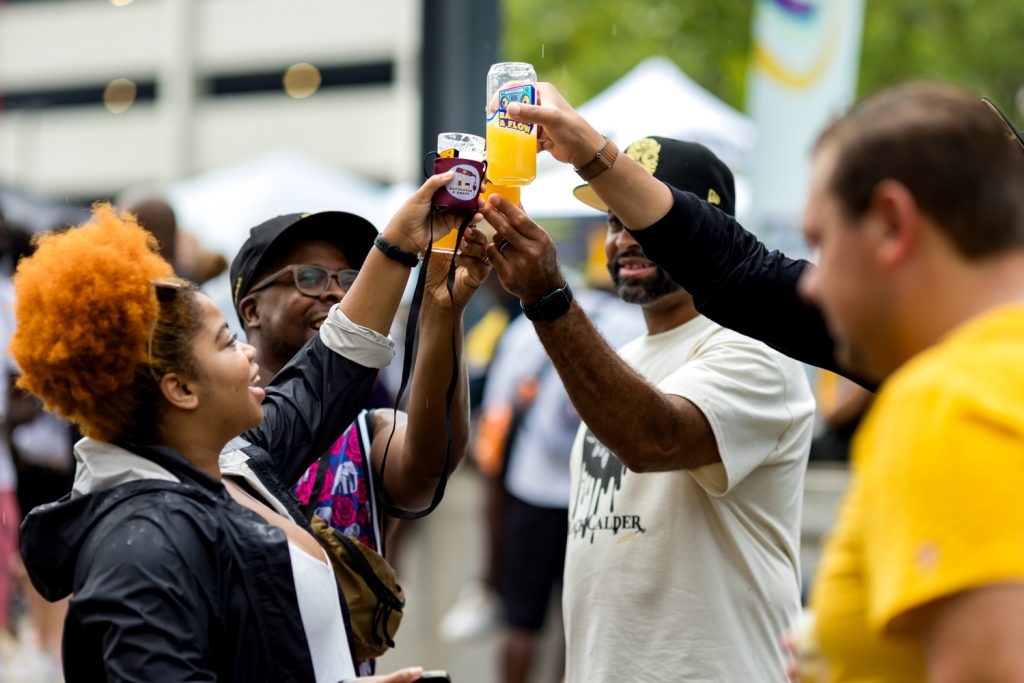
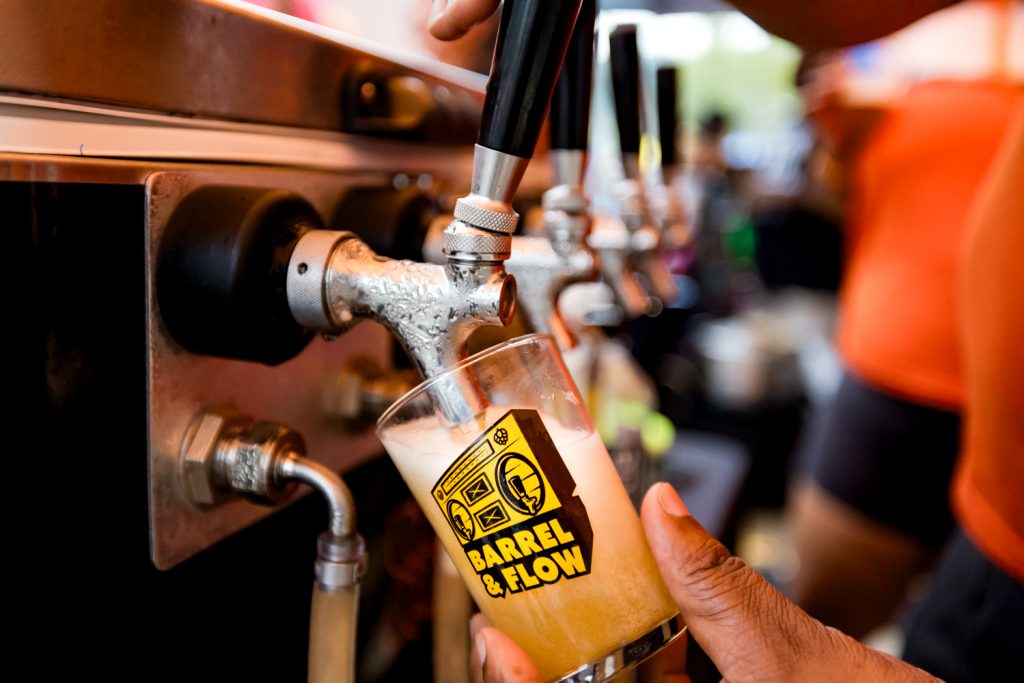
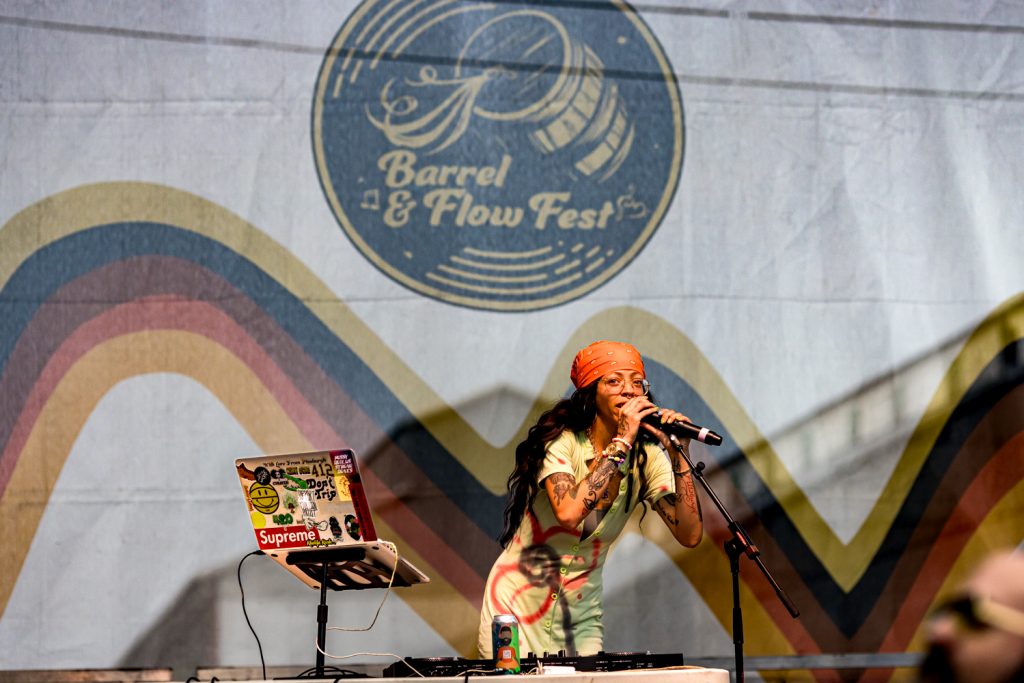
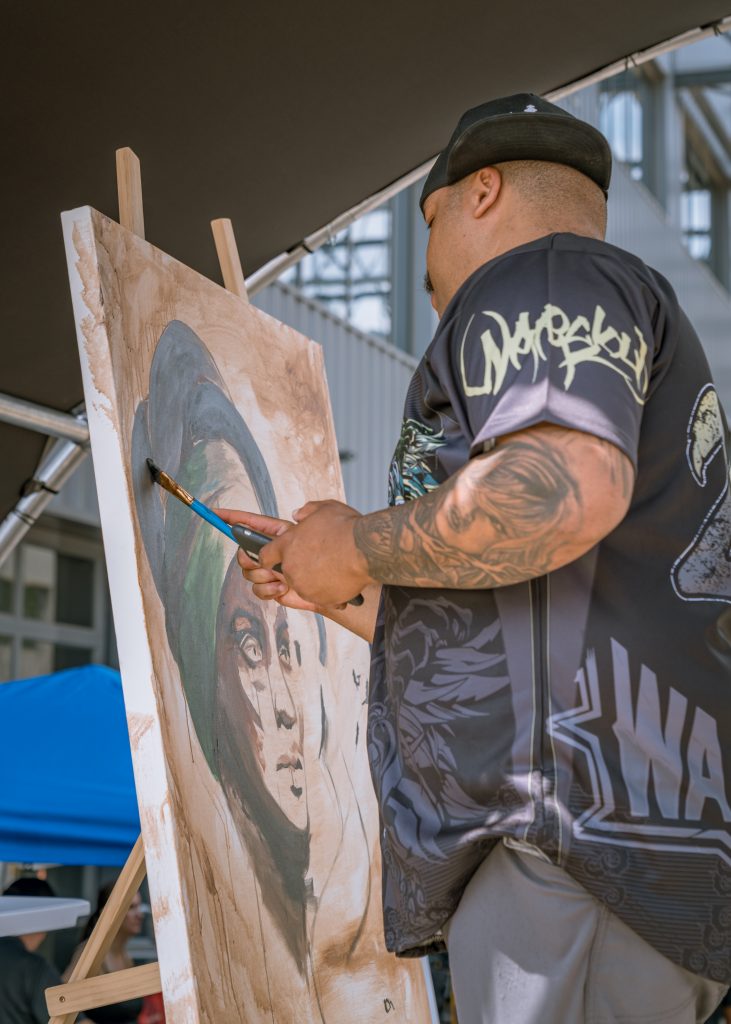
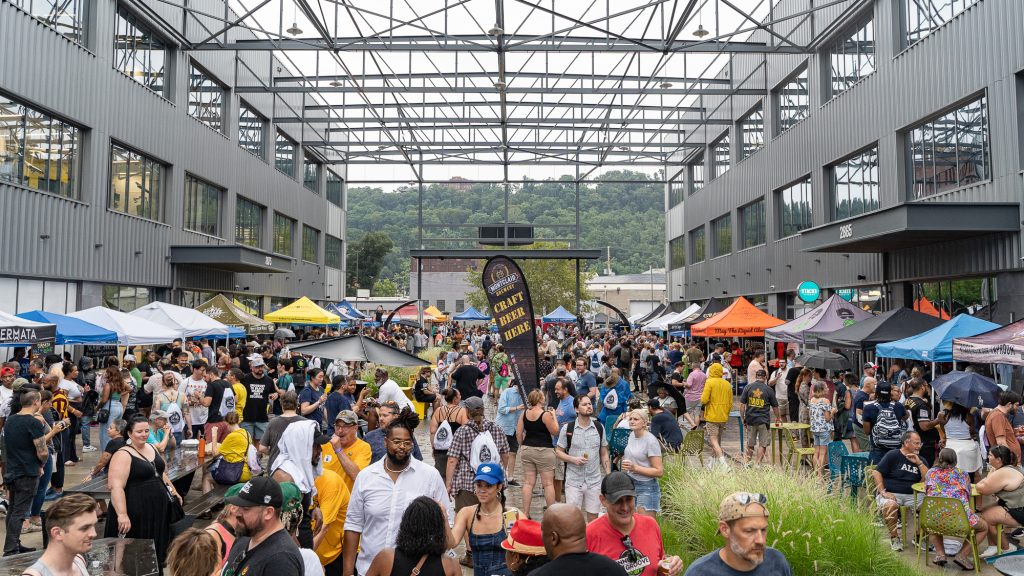
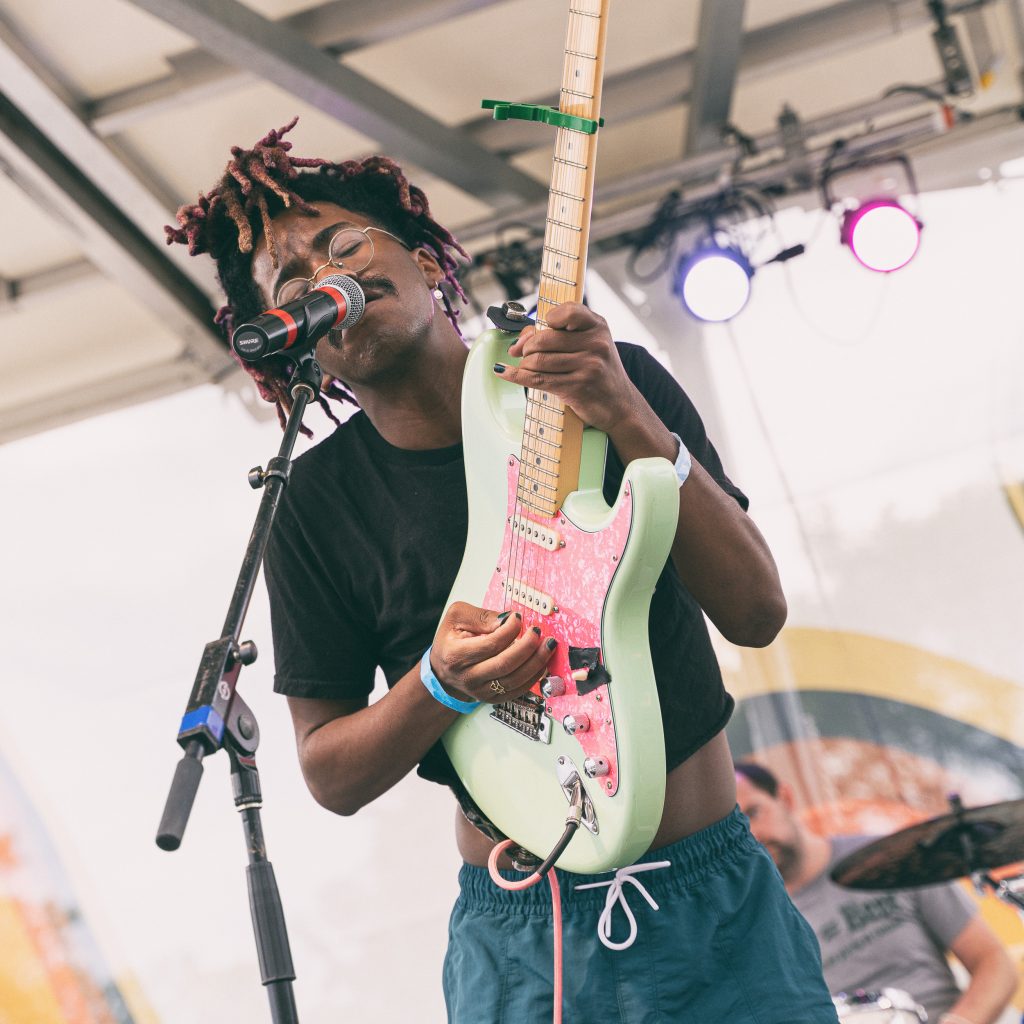
The lively 4000-strong 2023 Barrel & Flow festival: Photo Credit: Courtesy of Barrel & Flow
Why beer?
It’s not just beer. That’s why it’s called “Barrel & Flow” – anything that comes in a barrel. Anything fermentable. Kombucha, wine, liquor, all of that. With this festival, we noticed we started doing our collaboration brews around town. We got our name on all these tap handles in various places and [were] getting invited to all this crazy [stuff] around town. We noticed that we were the only Black folks in this scene. The question was, why? The answer, as with most things, was systemic racism, and lack of exposure, and opportunities. After interviewing hundreds of breweries, we started to realize patterns of behavior, and we started to notice that this was a national situation, not just a Pittsburgh situation. Our motto was, if we’re the only Black friends that you have, we’ll introduce you to more Black friends.
Talk about the exclusive collaborations you had in 2023.
Collaborations are a way to build bridges. One of the issues with the lack of diversity in brewing is representation; access is another. With these collaborations, we are able to provide the Black community with access to the brewing process and the industry without asking them for anything in return. We’re able to divert money from the brewing industry into the Black community through these collaborations. Not only are folks able to understand the brewing process and the industry, but they’re also able to promote their brands, and get to pour at the festival that has 4,000 people.
How does a brewer get into your festival?
To pour at the festival, you need to be a Black brewery, of which there are less than 100 across the country out of 8,000. And we had 40 of them represented [in 2023] at the festival. So, you either need to be a Black-owned brewery or you need to collab with a Black entrepreneur. And in that collaboration brew, we’re introducing folks to the various styles of beer. A lot of folks say, ‘well, I don’t like beer.’ They usually think of a lager, or they think of an IPA. But beer can taste like [lots of things]. We’ve had Khamil Bailey our first year and she had a BBQ beer. We’ve had Walter’s [Brewery] do a cornbread flavored beer. We’ve had Sam Black; she did a sangria flavored beer. By having these conversations and these collaborations, Black folks are able to create something that they actually drink, something that they can be proud of. And then we require that each of these collaborations feature the paid and accredited artwork of a Black artist. So, each of these collaborations is uplifting at least two businesses – the collaborator and a Black artist.
How has growing up in Pittsburgh informed what you do?
It’s a very tough place for Black people to exist. Having traveled and [seen] how Black people exist in other places, it was very apparent that – while racism is everywhere – Pittsburgh is pretty bad comparably. But the cost of living here is dirt cheap, and we don’t have a lot of natural disasters. And it is a mid-market city which allows you to make a lot of connections in a short period of time. Whether you know it or not, you’re only a degree of separation from anyone in this city. So, you’re able to make a larger impact in a shorter period of time. Living here, I’ve been able to see a lot of the Northern racism, where people try to front like it doesn’t exist, but it comes out in various ways. Trying to figure out ways to tackle that silent racism, I chose to stay here because one, I wouldn’t be able to be self-employed in L.A. And secondly, I see the need for a Black festival here.
“When I got into comedy, it was to speak truth to power. And as we got into the brew festival, it’s always been people first. People over profit.”
Day Bracey, Barrel & Flow
What’s the breakdown of local folk versus out of towners coming to Barrel & Flow?
To be honest, we’ve just started to get people from Pittsburgh. Most of the people who come to the festival are from outside of the city. You have to look at craft beer as a luxury item. And Black people in Pittsburgh are broke. Statistically, it’s one of the poorest places in the country for Black people. So, most of the people who came to this festival travel from around the country. We were surprised. We had people flying in from South Africa, from India, Guam, from Costa Rica, Canada, Australia, as well as from around the country.
But the goal is to get more folks from Pittsburgh. When folks look at a $50 ticket to an event, [even though] our prices are wildly lower than the average beer festival, people don’t really know in general what they’re going to get into. They’re not willing to take that risk. But at the same time, they’ll go down to Burn [bar and cigar lounge] and spend that same $50 on two drinks. So, it’s just a matter of having that education [and] having that conversation, which is a lot of what we do throughout the year: events, outreach, scholarship programs [and other] things we do in our community to bring more people into it.
We noticed that we were the only Black folks in this scene. The question was, why? The answer, as with most things, was systemic racism, and lack of exposure, and opportunities.
Day Bracey, Barrel & Flow
Besides the emphasis on Black brewers, what differentiates “Barrel & Flow”?
We have been able to successfully push the model of festivals in general. We pay everybody above industry rates. Most of these festivals, and most events in general are cash grabs. The only people making money are the venues and the producers and nobody else. So, what we’ve been able to do is to make sure everybody gets paid, and we still make money by building these mutually beneficial relationships. So, it’s not a charity; we’re a for-profit business. But because everybody’s appreciative, proud [that] we’re excelling, they’re not just showing up, making $5 an hour, pouring some beer, and going home. Our staff is paid like $20 to $25 an hour. And that’s the least you get paid to show up to this festival. That has been the key to our success.
When you started, did you have this “do good, do well” idea in mind?
Yes, because I was in the system when I was a youth. I worked in the system as an adult. When I got into comedy, it was to speak truth to power. And having those difficult conversations where you couldn’t, you were reaching people with your voice and thoughts. It was always with a sense of changing the world. And then as we got into the podcast, and as we got into the brew festival, again, it didn’t make sense that we would continue to do the same old predatory shit. So yeah, it’s always been people first. People over profit.
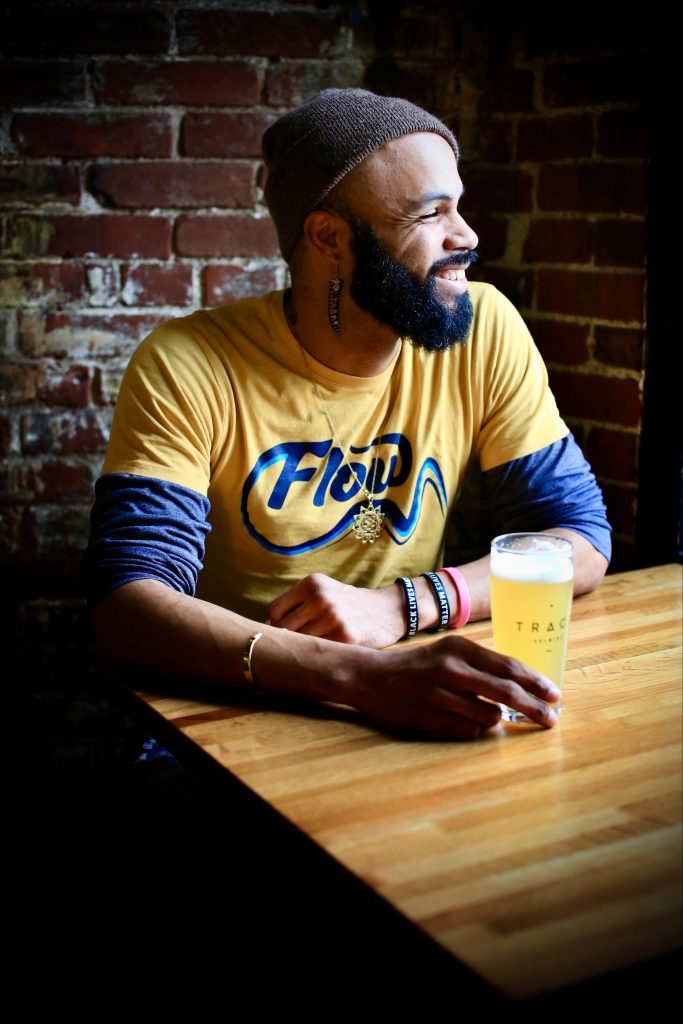
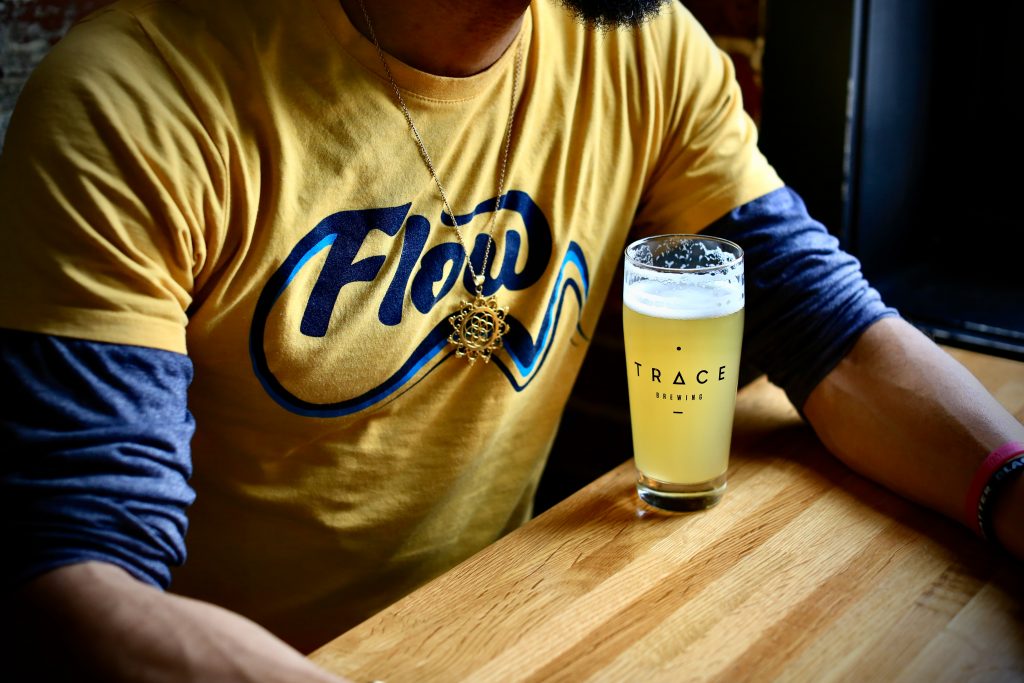
Bracey at Trace Brewery in Bloomfield in February 2024. Photo Credit: Emmai Alaquiva
Day’s Pittsburgh Hits
Favorite beer?
I like stouts, it’s my favorite style.
Favorite local brewery?
Trace Brewing. It might be the only paid apprenticeship program in the brewing industry. And the beer is really, really, good.
Blackest spot in Pittsburgh?
Art’s Tavern
Best food spot?
Blowfish BBQ
Best chill spot?
Bonafide Beer Company
Best Pierogies?
I don’t seek out potato empanadas.
Favorite bar?
Genoa Pizza and Bar (kitchen open till 1:30 am)
Barrel & Flow Fest has been set for August 10, 2024. For more information go to barrelandflow.com
Angela Bronner is a writer and editor living in Harlem, NY


